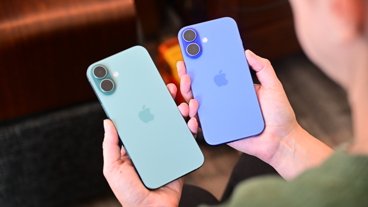Google chief executive and Apple board member Eric Schmidt disclosed during a speech on Wednesday that his unique situation atop the leaderships of both high tech firms has periodically required that he step away from portions of the iPhone maker's board meetings.
Speaking at an event in San Francisco sponsored by Syracuse University's Newhouse School of Public Communications, Schmidt was asked whether the inevitable competition between Google and Apple in the cell phone area would force him to resign from Apple's board of directors.Â
"It has not so far," Schmidt says, although he notes that must 'occasionally be excused' from the room when certain aspects of the iPhone enter discussions. He also downplays the significance of the events by pointing out their rarity; there isn't a regular clash between each other's interests, according to the Google executive.
"I've only done this once or twice, so it's not as common as it sounds," Schmidt adds.
To that end, Schmidt also takes care to distance phones using Android from the iPhone. The offerings should be "quite different" in practice, he explains. While the differences weren't fully illustrated at the event, Android devices aren't required to use a touchscreen and in some cases can have either physical controls alone or even both, in the case of the rumored HTC Dream. The software is also more flexible than for Apple's device and allows handset creators to modify nearly any aspect of the code, including core components like the dialer.
Regardless, the two companies have drawn increasingly closer in terms of interface and even design philosophy, potentially putting either at odds in the long term. Recent demonstration builds of Android have shown cosmetically similar home screens, while Google has also talked of implementing its own software store that would embrace a concept similar to the App Store accessible from Apple's iPhone 2.0 firmware.
Google in the past has de-emphasized the broader potential for conflicts of interest by stating that its goal is to make Google's services, not branded devices, available to as many users as possible. The company earlier this year was surprised but pleased at heavy iPhone traffic to Google , which helps drive the search engine giant's web ad revenues.
 Aidan Malley and Kasper Jade
Aidan Malley and Kasper Jade






-m.jpg)






 Christine McKee
Christine McKee
 Charles Martin
Charles Martin
 Mike Wuerthele
Mike Wuerthele
 Marko Zivkovic
Marko Zivkovic
 Malcolm Owen
Malcolm Owen


 William Gallagher
William Gallagher


-m.jpg)






67 Comments
Alrighty, then...
I'm surprised the AI article doesn't make mention as well of MobilMe as in potential future conflict with gmail/google Docs/Picasso. I could certainly imagine future versions integrating more of the iLife/iWork suite, and then we would have the leading paid and ad-supported options for consumer "cloud" computing.
The software is also more flexible than for Apple's device and allows handset creators to modify nearly any aspect of the code, including core components like the dialer.
So Android phones can be incompatible with other Android phones. There will not be any consistency of use between different phones running Android?
Then what's the point?
So Android phones can be incompatible with other Android phones. There will not be any consistency of use between different phones running Android?
Then what's the point?
There are iPods that use click wheels and iPods that use touch screens, does that make them "incompatible" or "inconsistant?"
As I see it, Android is more of a platform than a product. The whole idea is that phones can be made with a great deal of variety to appeal to different consumers while shairing certain core functionaliites.
The more I see of Android, the more impressed I am. I suspect its potential has a lot to do with the dramatic changes in Apple's iPhone strategy--they want as much user base as they can get now, while they have the head start...
So Android phones can be incompatible with other Android phones. There will not be any consistency of use between different phones running Android?
Then what's the point?
Google is trying to make a holy grail, open source platform for cellphones. With so many different hardware choices and a virtually unlimited combinations, paired with the limited storage capacity of such devices manufacturers will have to cater each Android build for each device.
The beauty is that cellphone OS development can grow together, moving from manufacturer to another doesn't mean you have to completely learn a new phone's setup and all your personal data has the potential be easily moved from to the other as devices get more complex, yet they can still be personalized from the manufacturer and on the user's side while a stable platform is used across the board.PS: I can potentially see other handheld devices without phones dumping their firmware for a more efficient firmware that is cross-compatible, like Android.